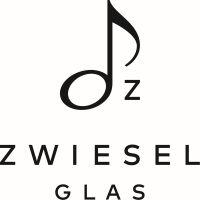Vega Sicilia is considered the most iconic winery in Spain. How do you preserve that legacy while also innovating for a new generation of consumers?
In the wine world, there's often a tendency to believe that "the past was always better," and as in most things, that's simply not true in our sector.
Everything must evolve - because if it doesn't, it will die. Can you imagine what wines from 400, 500, or even 1,000 years ago must have been like, traveling across the world, turning into vinegar or becoming full of impurities due to the winemaking practices of the time? We don't even need to go back that far to see how much wine has improved in terms of cleanliness, safety, and overall quality. Today, people worry about whether travel affects wine - now! Back then, the experience must have been dreadful: wines tainted with Brettanomyces and other hygiene issues. At the time, people even said Brett was a characteristic of certain wines. It certainly was a characteristic - but of poor sanitation.
I may be exaggerating slightly, but not by much. In the end, our responsibility is to preserve the unique identity that Vega Sicilia has developed over 160 years of experience, history, and even mistakes while successfully maintaining that personality above passing trends, both past and future. Our duty is to keep improving, always respecting what defines us: our vineyards, rooted in unique soil and nurtured by a unique climate. That identity is the greatest thing we can offer to wine lovers.
You've expanded to Rioja, Toro, and now Galicia. What drives these decisions, and how do you ensure that each project reflects Vega Sicilia's DNA?
It takes many years to consolidate each project. When we consider a winery truly established, it's because we've reached the maximum production (not quality) that we can achieve at the level of excellence we believe is essential. At that point, we take on a new challenge - because that's our only way to grow.
There have been temptations to create a large-volume wine behind our premium labels, but we've always resisted. Our philosophy remains the same: to make the very best wine possible in each location. If I may say so, making all our wineries globally iconic after 160 years is no easy task - but challenges should be difficult. The foundation of everything is owning our own vineyards in each project, because, as I always say, that's where it all begins. And that's not as simple as it sounds - it takes years, and we too have made mistakes when choosing vineyards. From there, it's all about quality, seriousness, and responsibility. Do you know of any better formula?
Your recent investment in Rías Baixas is a bold move. What was the motivation, and what challenges did you face in such a fragmented region?
For me, Albariño is Spain's greatest white grape variety, and we've long wanted to do something special in that region. In fact, seven years ago I proposed to the family that we invest in Rías Baixas. And here we are, trying to figure out the best way to get the most out of such an exceptional grape.
Rías Baixas has 4,000 hectares of vineyards and 16,000 owners. Some vineyards are literally someone's garden, so assembling even one hectare in the areas we consider best is no easy feat. We're focusing on Salnés, Condado, and Rosal - though for now, we have no vineyards in Rosal. Among the biggest challenges are understanding the different soils in these zones and identifying the best clones, because in many cases, proper clonal selection hasn't even been done.
We believe Albariños can age beautifully, and we've tasted some truly impressive examples. We don't intend to make wines for long-term aging, far from it, but wines that can evolve very well in the short to medium term. After four or five years of experimentation, the 2024 vintage is the first where we decided to produce 30,000 bottles for the market, which will go on sale in early 2027.
After Galicia, are you tempted to explore other regions, inside or outside Spain, for future projects?
We've always been tempted to make wines in other regions. About 10 years ago, we were very close to buying a winery in Saint-Émilion, but in the end, we came second, and someone else bought it. Burgundy is now so outrageously expensive that it's practically unattainable - only accessible to the world's biggest fortunes. North America remains interesting, especially regions outside Napa.
The UK is a key but very competitive market. How do you maintain relevance, and to what extent does Vega Sicilia's status as a collectible wine influence your strategy?
The UK is a major wine-consuming country and increasingly important for us. I often say I'm not entirely sure whether wine culture was created by France, which made the wines, or by the UK, which drank them. Either way, the UK is a nation with deep wine knowledge and appreciation. However, I'm not a big fan of our wines being overly collected. We want our wines to be enjoyed - that's what matters most - and we don't want speculation to dominate. Wine is for drinking, and for doing so over many years.
Right now, the UK isn't immune to the global wine crisis. I imagine this will pass. Bordeaux faces a major challenge, and it's clear Bordeaux remains the most influential wine region in the world. That's why we say in Spanish: "when Bordeaux catches a cold, the rest of the world gets pneumonia."
Let's hope things improve and the UK regains its position as a high-quality market.

Q&A: Pablo Alvarez, MD, Vega Sicilia
As Vega Sicilia ventures into Rías Baixas, Pablo Alvarez sits down with James Lawrence to discuss innovation, remaining true to your roots, and missed opportunities in Saint-Emilion.

Pablo Alvarez

 English
English French
French









.png)








